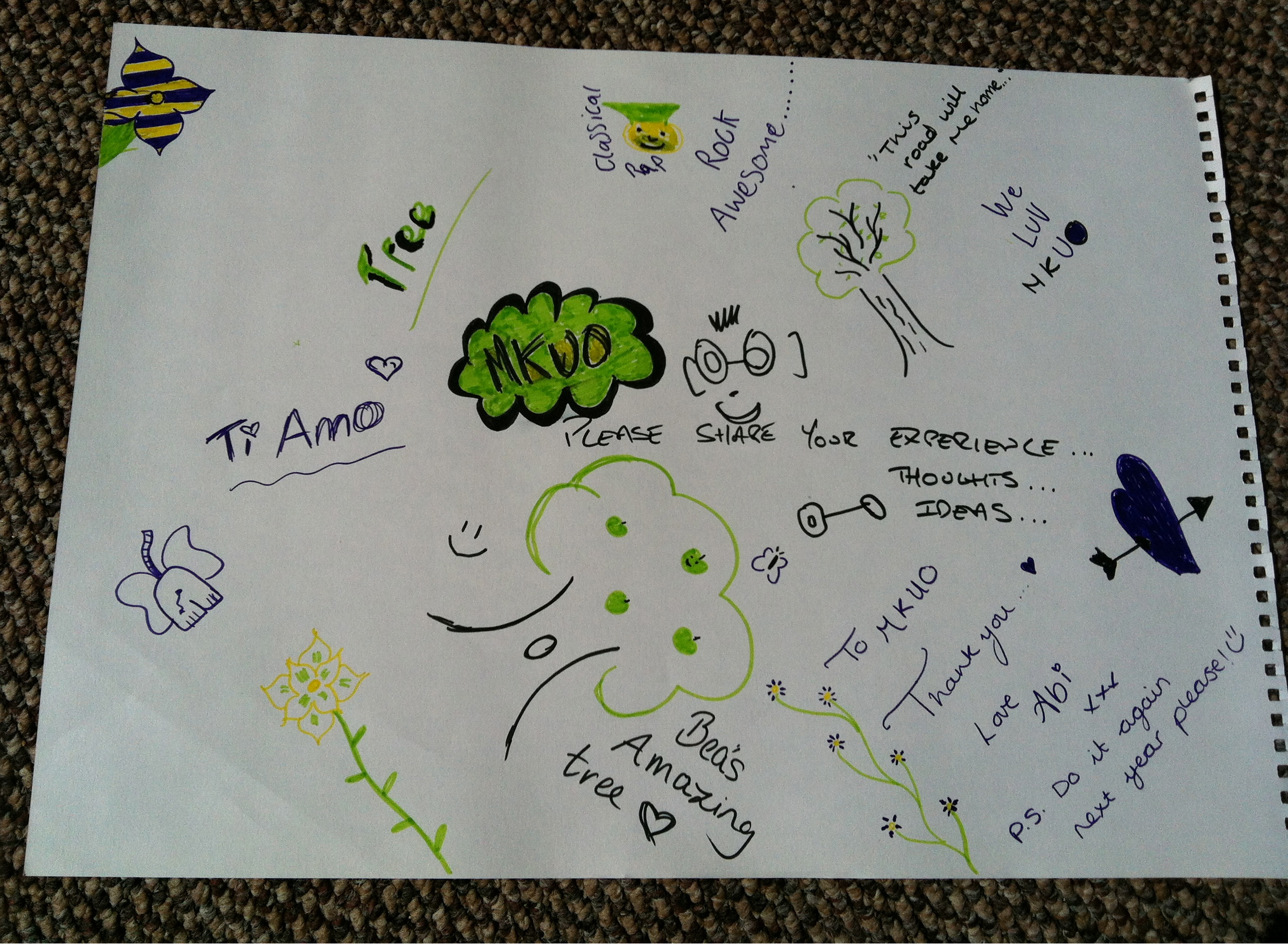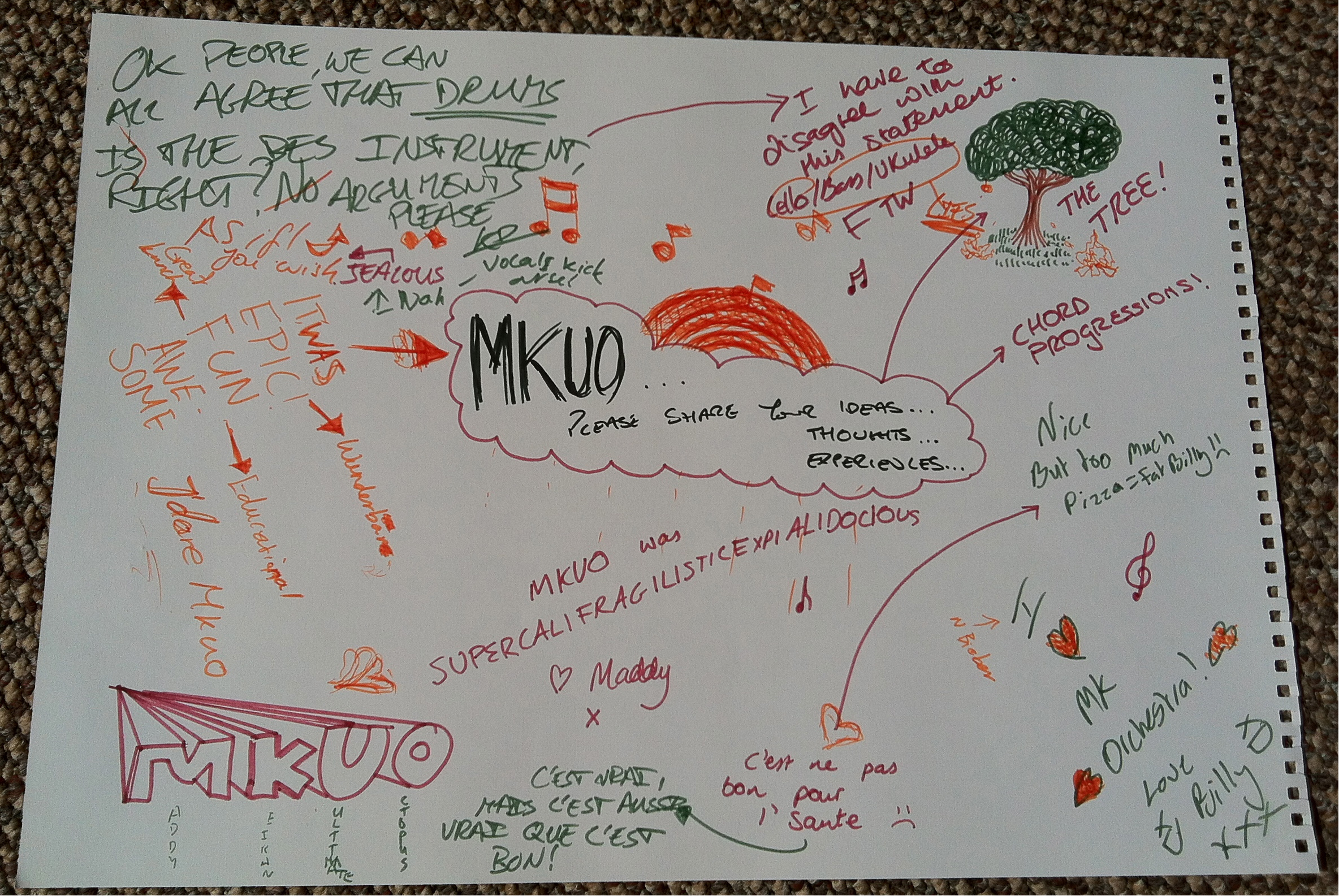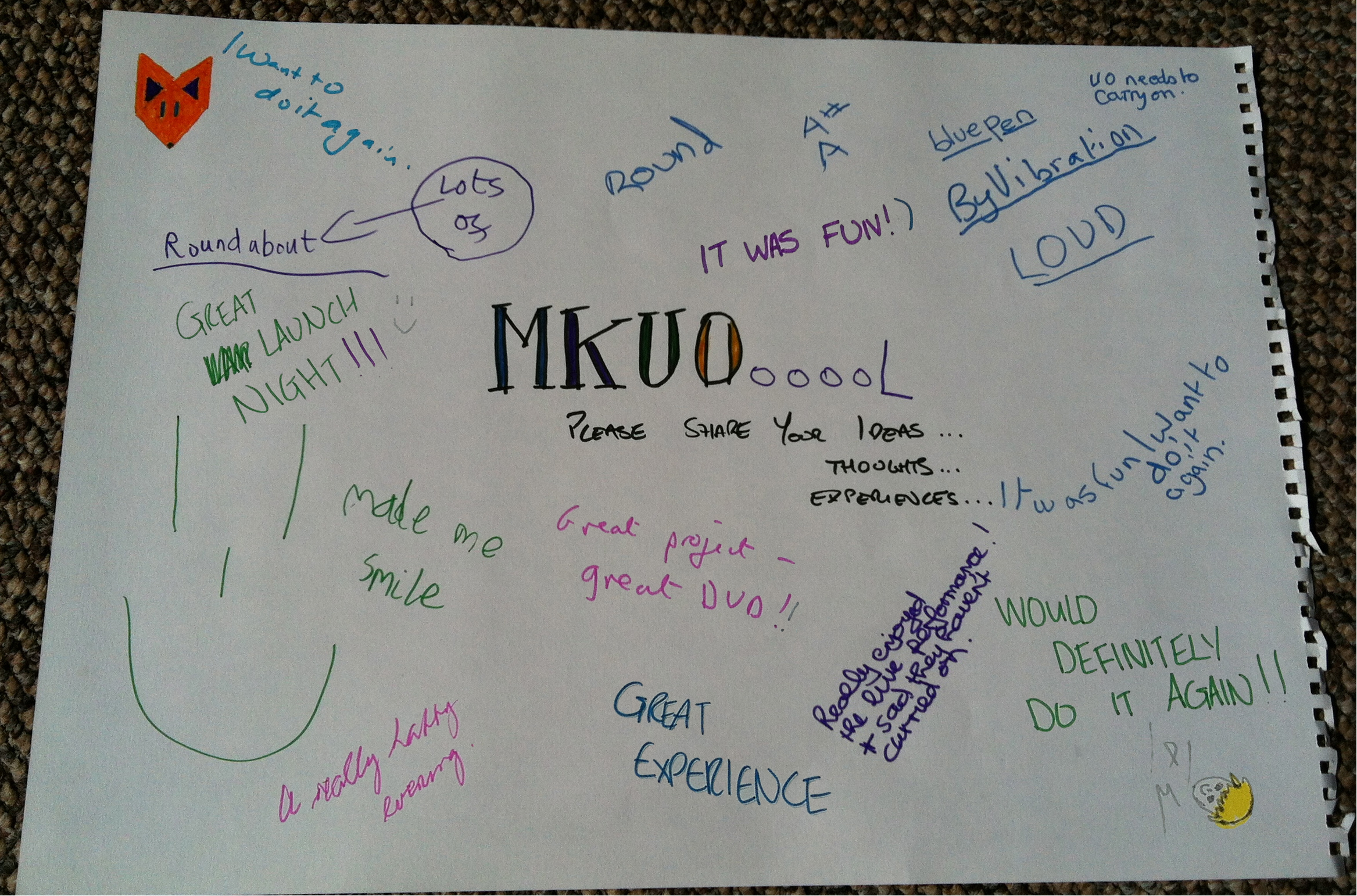This is the original project outline for the MKUO project as put together by Readipop and Graeme Surtees at The Stables
The Stables Urban Orchestra project – outline proposal.
“Making music without boundaries”
A brand new project for young people in MK to make music that cuts across boundaries, bringing together young musicians experienced in urban, pop and rock music with young orchestral musicians.
The young musicians will work together to devise and compose an original piece of music that incorporates both urban and classical styles for a live concert performance, DVD recording and primary school ‘roadshow’.
The founding vision of the Stables was to break down barriers between different types of music. By staging the Urban Orchestra project in Milton Keynes we are directly responding to that vision by :
- Creating a new musical project for young people in MK
- Creating an inclusive and open access ‘orchestra’ of young people.
- Staging a live performance using the orchestra model,
- Enable young musicians from different musical and social background to collaborate, experiment, improvise and compose together.
- Creating a new score devised with the young people, fusing musical styles, approaches and methods
- Giving young musicians the chance to collaborate with professional musicians.
Urban Orchestra will bring together a new consortium of organisations including The Stables, MK Music Service, Readipop, voluntary sector youth & arts organisations, schools and MK College. The project will be managed by The Stables and lead by artists from Readipop, and include an element of Continuing Professional Development for music leaders and trainees
The Urban Orchestra model was successfully piloted in Reading in 2009 and this project will allow Readipop to develop the model further, incorporating ideas from the evealuation of the pilot, reaching new young people in a different part of the country, forming new partnerships and extending their work across the region.
The creative theme
The creative stage of the process is at the core of the project and will be driven by the the young musicians taking part. The creative process will be facilitated by the professional music leaders. It will be structured to support the creative process for the young musicians and provide a number of themes and ideas to engage them an dprovide ‘hooks’ to strat the creative process.
The themes and ideas to inform the creative process include:
- To explore ‘the orchestra’ past, present and future.
- Use historical, present and ‘future’ techniques to re-arrange, adapt, remix and improvise together – from baroque to dub-step.
- Use the ‘soundclash’ concept to mix and interact between the urban/electronic and classical/real instruments thought call and response and sharing/passing and re-working musical ideas. Use electronic concepts like ‘ring modulation’ and adapt them to the live orchestra.
- Incorporate found sounds and personal technology – ringtones, mobile phones, laptops etc.
- Include audience interaction – ie giving out a number to call from the audience to set off parts of the piece and a ringtone to download in advance.
- Themes will be devised from concepts around the ubiquity of the mobile phone, conversations, dialogues and its use to share modern everyday experience.
The project partners
Partners: The Stables, Readipop, Youth Music, Musicleader SE, MK Schools, Music Service, MAD, Madcap, MK College
The Stables is an Internationally recognised music venue in Milton Keynes,founded as a registered charity (Wavendon Allmusic Plan) in 1969 by the world-famous jazz musicians Sir John Dankworth and Dame Cleo Laine. The Stables has been committed to music education and participation from the beginning, and currently delivers over 350 concerts and 250 education sessions each year. Education projects range from interactive concerts to participatory workshops and longer-term projects.
Readipop are a Reading based music organisation working at the cutting edge of community music practice, delivering community projects, working across musical genres, running a venue and recording facility, offering learning opportunities for musicians of all levels from beginner to professional.
Youth Music is the leading UK charity providing children and young people with access to a wide range of music-making projects and activities. It supports music projects, develops music programmes and provides music-making opportunities for young people across the country.
MusicLeader SE is …..
Milton Keynes Music Service ….
Participants will be drawn from:
Schools: via outreach taster days with selected schools.
Music Service: a broad mix of instrumental players from different ensembles.
‘Urban’ Musicians: via the schools, voluntary sector youth organizations including Madcap MAD (Make a Difference), MK College music technology courses.
Outline timescale
Winter 20010/11
– planning and fundraising with partners
Spring 2011:
– Confirm funding
– Recruit trainees
– Identify music service tutors
– CPD and planning sessions with all musicians
– Contact Schools and other partners.
June/July 2011:
– School 1 day taster workshops
-Taster with music service
-Tasters with other partners – eg college, MAD, Madcap
September – November/December 2011:
– Development /Devising workshops – weekly sessions with music service group.
– October – 3 day half term devising workshop plus team scoring sessions.
– October/November – rehearsals
– November 2009 – performance at The Stables
Early 2012:
– work with primary schools
– follow-on performances
– links with other projects
– DVD Launch
Spring 2012
– legacy planning
– evaluation
Project process
The project will be delivered by 2 musicleaders from Readipop and 2 from MK Music Service, through a structured process as follows:
An initial development phase –
- An initial 2 day CPD planning and skills exchange phase for Music leaders to come together to launch the project and establish working relationships between the collaborating music leaders, plus a CPD opprtunity open to other musicleaders on collaborative and cross-genre working
- 1 taster/training day in each participating schoolduring school hours – to target pupils who do not currently participate in out of school hours music making. A full day will be spent working with together with music teachers, to run taster sessions exploring improvisation, composition and performance with potential participants particularly those in rock and pop, urban or music tech activity outside
· This will happen during school ‘enrichment’ sessions and will aim to encourage those pupils to sign up for after school follow-on sessions and the other weekend and holiday workshops and rehearsals.
- 4 after school sessions in each school, targetted at ‘hard to reach’ young people associated with each school eg excluded pupils through Pupil Referral Units.
Three strands of weekly sessions –
- 12 outreach sessions with the voluntary youth sector, to focus on urban musicians and to introduce participants to working as part of a larger creative group and the expectations and conventions of playing in an orchestra. This will include ’hard to reach participants’ identified throughthe voluntary youth sector partners.
- 12 outreach sessions with MK Music service, to focus on young musicians playing orchestral instruments but who may not be familiar with other forms of music making.
- 12 outreach sessions with music technology students to focus on urban musicians and to introduce participants to working as part of a larger creative group and the expectations and conventions of playing in an orchestra.
A final creative phase
- An intensive 3 day devising programme – this will bring together all the participants in devising the piece, finalising musical and technical issues, agreeing roles for the performance
- 2 full day rehearsals
- live performance and the creation of the performance / evaluation DVD
- 10 primary school roadshow performance/workshops, touring the DVD and delivering workshops to 10 feeder schools.
CPD
Each partner organisation will host a skill sharing ‘exchange day’ to introduce the partner music leaders to their unique style of working. The music leaders will be able to explore each other’s working methods and share in good prcatice. These exchange days will inform the workshop design of the school taster sessions and the initial musical devising processes. A key theme of the project is the ongoing professional development gained through the partnership between a music service and a community music organisation.
The Trainee role
This project includes a trainee position for a young or emerging music leader. The trainee will shadow the the music leaders, support delivery of elements of the workshops, take part in all the training and cpd associated with the project.
The trainee will also be given other learning oportunities with The Stables and Readipop. The trainee will be paid a training allowance to enable them to dedicate time to the project, but will need to work flexibly to cover the range of workshops and sessions.
The traineeship will be advertised via MK Music Service, MK College, Musicleader, Arts Jobs, local Voluntary sector arts and community networks,
Project management
The Stables will have overall responsibility for the project and will contract Readipop to undertake the direct project management and delivery. A steering group of partners will meet regularly to monitor the progress of the project against the agreed timescale. Agreements will be drawn up outlining the respective roles of Readipop, MK Music Service the participating schools. Readipop will be responsible for drawing up a programme of professional development for the trainee.
Monitoring and Evaluation
The Music Leaders’ will collect attendance records and monitoring information for each session throughout the project. This will be be reviewed at regular steering group meetings. Music Leaders will produce a report at the end of the taster process, analysing the work to date and making recommendations for the next phase. They will also produce a report at the end of the project which will form part of the final evaluation and the exit strategy. The final DVD will include video interviews with some of the participants during the latter stages of the project to collect feedback and record the content of some of the workshop sessions. The evaluation will include the views of the partners, participants, music leaders, trainee, audience.



